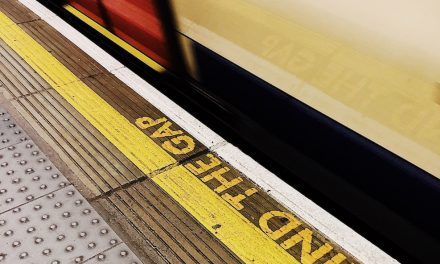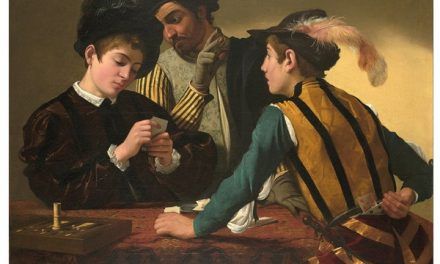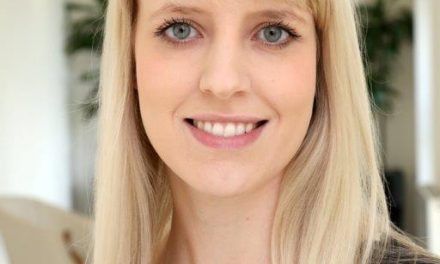Social mobility at the Bar has always been an acute problem. However, achievement of a representative Bar is a realistic goal if the profession remains committed to ensuring that it is accessible to those from underrepresented backgrounds.
I come from an estate in east Cardiff. My parents had me at a young age and I do not think they would take issue with me saying that they struggled. My dad was a printer and my mum worked for SWALEC, an electricity supply and distribution company in South Wales defunct since December 1993. For the first few years of my life, we lived ‘at the bottom’ of Llanrumney. We then moved to an estate called St. Mellons. I attended a state primary school, high school and college. My high school has been in the news various times, branded by the BBC as ‘one of the worst performing schools in Wales’. However, I am aware that the school has recently been removed from Estyn monitoring.
I have always wanted to be a lawyer; I do not really know where the desire came from, but my family recall me saying it from roughly around 10 years old. I have to say, I did not really know how to get there, who to ask for advice, or if it was ever going to be possible. After college, I began to work for a small local family law practice as a secretary situated between a few large estates in east Cardiff. It was then that I decided I could do more, so I decided to save money and apply for university.
I attended the University of York at the age of 21. I am the only person in my family to ever achieve a qualification above GCSE level, let alone go to university to study law. I was very fortunate that I received several grants and scholarships from the university due to my low income. Without these, there is no way I would have been able to afford to attend. During the first few months of my first year, I saw a beginner’s moot competition which I thought I would try out. Terrified, I stood up to make my submission. Nobody seemed to detect how terrified I was. Once I realised that my terror was internal, and that I had the ability to keep it that way, I started to enjoy myself. To my amazement, I won. I then signed up for another, which myself and a partner also won. I was hooked, I loved the research, coming up with inventive arguments and presenting them via submissions or through witness questioning. It was at this point I knew I wanted to be a barrister.
In my second year, I started to research the Inns of Court and came across the Middle Temple Access to the Bar Scheme. I was fortunate to have been awarded a place on the scheme, namely the Michael Sherrard Award. The Inn got in contact with me and said that they had arranged for me to stay with a Master of the Bench for the first week of the scheme. I have to say, I was worried about this and what they may think of me, or whether they would like me. I was met off the bus in Westminster by Master Carolyn Toulmin. She beamed at me, introduced herself and told me that we would head back to her apartment for dinner. I remember being worried about how I should act or what I should say, but I need not have. We very quickly struck up a friendship. I felt that I could be myself around her and that she really accepted me for who I am.
The first week I was placed with Blackstone Chambers for a mini pupillage, which involved sitting with members of chambers and working through previous briefs, some of which resulted in landmark public law decisions. Master Toulmin would make me breakfast every morning and would do so to court timings. ‘Breakfast not before 9am,’ she would say. As much as I was enjoying my time at chambers, I was always so excited to go home to her, to chat about my day and listen to her stories. I confided in Master Toulmin about how I thought I would like to be a commercial chancery barrister, but that I did not know if I would ever make it or if I would ever be good enough given that I was not privately, or Oxbridge educated. She reassured me that I could do it and encouraged me to undertake further study.
The time came for me to leave and move into lodgings, but she said she did not want me to leave, and I shared the sentiment. We decided that we would go shopping together on the Saturday and she met me for lunch whilst I was undertaking my marshalling placement with Master Michael Gledhill. I was similarly worried about what he may think of me, but again, I received nothing but warm welcomes, good conversation and encouragement. Before I left London, I saw Master Toulmin and asked if she would like to visit me in York and attend the Law School’s annual careers dinner. She was thrilled about this and we stayed in touch. Unfortunately, she contacted me to say that was unable to come due to falling unwell. She sadly passed away some months later. I was devastated at this news. Although we had not known each other long, she made such a huge impact on my confidence and became a true friend. Master Toulmin believed in me and made me feel that my background did not matter. I was so determined to make her and my family proud.
After my Access to the Bar Scheme experience, I felt that other students in my position deserved the opportunity to explore a career at the Bar without financial barriers. I founded and ran York Bar Society in the final year of my degree. Middle Temple kindly agreed to provide sponsorship to get the society up and running, enabling me to run events and competitions free of charge, making them accessible to all. For example, I planned a subsidised ‘Bar Walk’ throughout London with a tour guide and an Inn visit, assisting with travel costs for those from low socio-economic backgrounds.
I graduated with first class honours in my law degree and secured a place on the Master of Laws at the University of Cambridge. Unfortunately, for financial reasons, I was unable to take up the place in 2016. Determined not to let this stop me, or let Master Toulmin down, I worked two jobs for a year, saving every penny I had and wrote articles for publication in any spare time I had to boost my chances of securing a place and funding. I re-applied and attended Christs College, University of Cambridge, to study for the Master of Laws degree. I secured a small amount of funding from my college, took a loan for most of the fees and had managed to save enough to live on for the year, though things were very tight.
The time came to apply for the BPTC and Scholarships. You do hear horror stories about scholarship interviews and I found that my old insecurities about whether I was good enough, or if I would be accepted for who I am began to creep in. Yet again, my concerns were unfounded. My panel at Middle Temple were nothing but warm, welcoming and really interested in who I was as a person. I was fortunate enough to secure the Queen Mother Scholarship and Harmsworth Entrance Award, without which I would not have been able to study for the BPTC.
Every contact I have ever had at or via Middle Temple has been accepting and encouraging. Without the benefit of these contacts and the financial assistance of the Inn over the years, I doubt I would ever have had the knowledge, confidence, or financial means to pursue a career at the Bar. I am delighted to have obtained a Chancery and Commercial pupillage at St. Johns Chambers in Bristol, which I am due to commence in October 2021. From my very first contact with chambers, they were down to earth, keen to get to know me as a person and switched on in terms of diversity. The journey from St. Mellons to St. Johns has not been the easiest, but it feels incredible to have made it and was worth every struggle along the way.
For any prospective barrister from an underrepresented background, who doubts their ability to make, I hope reading my story has been helpful in highlighting that there is support out there and that the Bar is interested in you. By you, I mean your skill, drive and most importantly your personality. For me, those three things have been informed heavily by my background. The modern Bar is looking for what makes you different, so I encourage you not to supress it, to be proud of it and not to give up on the Bar so that we can achieve a truly representative profession.

Kayleigh Bloomfield is due to commence her Commercial and Chancery Pupillage at St. Johns Chambers in Bristol. She received state education until attending the University of York to study for her Bachelor of Laws degree. Kayleigh is a Michael Sherrard, Queen Mother and Harmsworth Scholar and hopes to be called to the Bar in November 2021.





